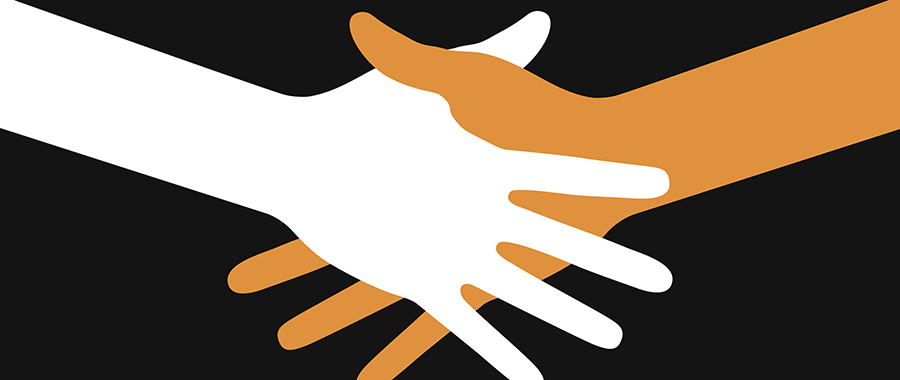The concept of moral force serves as a pivotal cornerstone within the Bahá’í teachings, presenting a robust framework that promises to engender profound societal transformation. It invites individuals to re-evaluate their roles within the collective and to foster an ethical mindset that culminates in a sustainably virtuous society. The necessity for moral force in modern times cannot be overstated, as individuals grapple with complex challenges such as inequality, conflict, and disconnection. This discourse explores the intricacies of the moral force as elucidated by Bahá’í principles, illuminating how these teachings can engender a paradigm shift in societal dynamics.
Understanding the moral force requires an exploration of the underlying principles of justice, unity, and ethics that Bahá’í writings advocate. Each individual is considered a vital component in the larger societal tapestry; their moral compass plays an instrumental role in shaping the community. To build a truly moral society, it necessitates a collective commitment to uphold values that transcend mere legalistic interpretations of right and wrong. Rather, it demands a deep-seated understanding that morality encompasses the ethical obligations we have toward one another.
At its core, the Bahá’í Faith posits that moral strength emanates from the recognition of the inherent nobility of the human spirit. This acknowledgement compels individuals toward actions that reflect compassion, integrity, and altruism. Such moral clarity fosters a sense of responsibility, urging individuals to engage with societal issues not only as passive observers but active participants in the process of transformation. This is not simply an abstract ideology; it is a practical guide for living harmoniously within diverse communities.
The interplay between individual and collective moral development is a recurring theme in Bahá’í discourse. Collective advancement is inherently tied to the moral progress of its constituents. Individuals must first cultivate their own moral strengths—through education, introspection, and adherence to ethical principles—before contributing meaningfully to broader societal initiatives. This notion reinforces the concept that the moral force within society is only as potent as the moral choices made by its individuals.
Another salient feature of Bahá’í teachings is the emphasis on justice. Justice, in this context, is not merely the enactment of laws or the application of punitive measures; rather, it is enshrined in fairness, equity, and the promotion of collective well-being. Advocacy for justice necessitates an examination of social structures that perpetuate inequities, compelling individuals and communities to confront uncomfortable truths regarding privilege, discrimination, and systemic barriers. Such an awareness serves as the impetus for social reform—a necessary precondition for the emergence of a truly just society.
In addition to justice, unity emerges as an essential pillar in the construction of a moral society. The Bahá’í principle of oneness teaches that humanity is fundamentally interconnected, transcending differences of race, nationality, and creed. Embracing this principle cultivates an ethos of solidarity and enhances interpersonal relationships. When individuals perceive each other as integral members of a unified whole, they are more likely to collaborate towards common goals, fostering an environment where the moral force is amplified rather than diminished by division.
Ultimately, the moral force that sustains society requires a re-calibration of perspectives on ethics and accountability. In an age characterized by reticence and apathy, Bahá’í teachings advocate for active engagement—both morally and socially. This involves not only fostering one’s own moral character but also supporting the moral development of others. Establishing ethical norms within families, educational institutions, and workplaces can create a ripple effect, extending the moral force beyond the individual and into the community.
Curiosity regarding the practical applications of these teachings can stimulate transformative discussions and motivations for action. For instance, individuals may ask themselves: How can I incorporate these teachings into my daily life? What role can I play in manifesting moral force in my community? The answers lie in actionable strategies, such as participating in community service, promoting social justice initiatives, or engaging in dialogues that address complex social issues. Each small yet deliberate act contributes to the overarching goal of building a moral society.
The role of education cannot be overlooked in this context. A moral education fosters the development of critical thinking, empathy, and respect for diversity. Such an educational framework aligns with Bahá’í principles, equipping future generations with the tools necessary to navigate moral dilemmas with integrity. Educational institutions can serve as incubators for moral leadership, nurturing individuals who embody the moral force that can uplift society.
In conclusion, the moral force that sustains society, as delineated by Bahá’í teachings, offers an expansive promise of societal evolution. By recognizing the interconnectedness of moral development and collective well-being, individuals can become catalysts for change. With a commitment to justice, unity, and ethical engagement, humanity stands at the precipice of an exciting opportunity—one that invites a conscientious shift in perspective and the courage to embrace our shared moral responsibility. It is through this collective aspiration toward building a morally strong society that the human spirit can indeed flourish. Through curiosity, action, and unwavering dedication to moral principles, a brighter future may be within reach.
